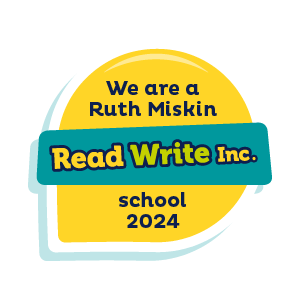ORACY
AIMS
Key Stage 1
- Pupils to be able to speak clearly, accurately and coherently, adapting their language and style in and for a range of contexts, purposes and audiences.
- Be able to use discussion in order to learn; they should be able to elaborate and explain clearly their understanding and ideas.
- Pupils are competent in the arts of speaking and listening, making formal presentations, demonstrating to others and participating in debate.
- Pupils to listen and respond appropriately to adults and their peers by considering and evaluating different viewpoints, attending to and building on the contributions of others.
Early Years Foundation Stage
- Pupils engaged in quality conversations with adults and peers throughout the day in a language-rich environment.
- To have back-and-forth interactions from an early age which form the foundations for language and cognitive development.
- To provide extensive opportunities to use and embed new words in a range of contexts and engaging them actively in stories, non-fiction, rhymes and poems.
- Use conversation, story-telling and role play as opportunities to give pupils time to share ideas with support and modelling from the adults.
Pupils are comfortable using a rich range of vocabulary and language structures that invite them to elaborate in conversations.
.


APPROACH
Voice 21 Approach
- Through a high quality oracy education pupils learn through talk and to talk. This is when they develop and deepen their subject knowledge and understanding through talk in the classroom, which has been planned, designed, modelled, scaffolded and structured to enable them to learn the skills needed to talk effectively.
- The deliberate, explicit and systematic teaching of oracy across phases and throughout the curriculum will support pupils to make progress in the four strands of oracy outlined in the Oracy Framework.
- The Oracy Framework can be used as a basis of formative assessment, enabling teachers to gauge what the pupils have or have not yet grasped and informing on what to teach next.
- Our Voice 21 Oracy Benchmarks provide a framework to identify, guide and empower teachers who are developing and refining their oracy practice, whether within their own classroom or as part of a school-wide approach.
ORACY CURRICULUM OVERVIEW
of
Zoom:
Search:














